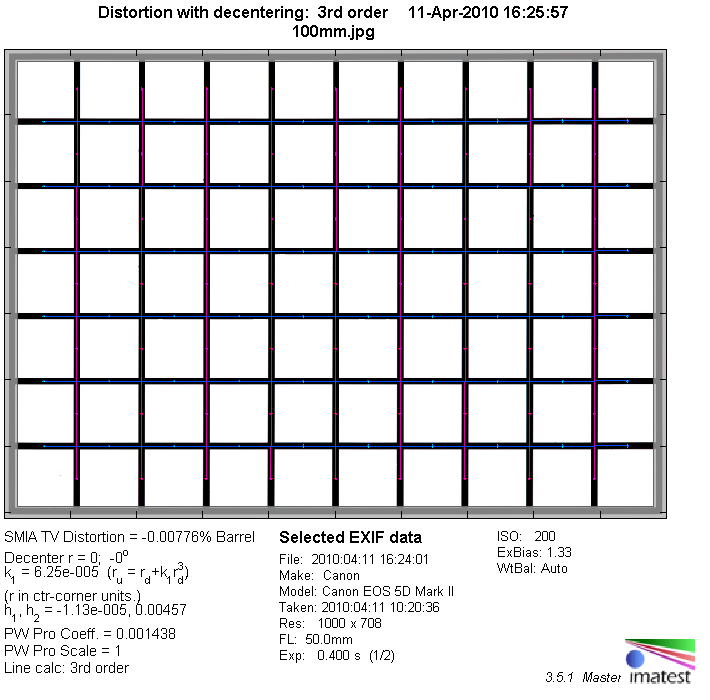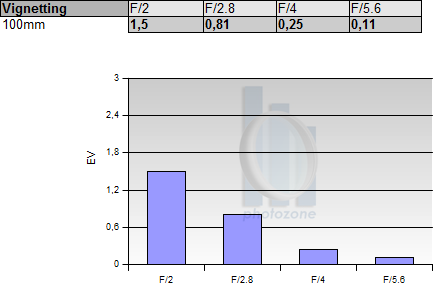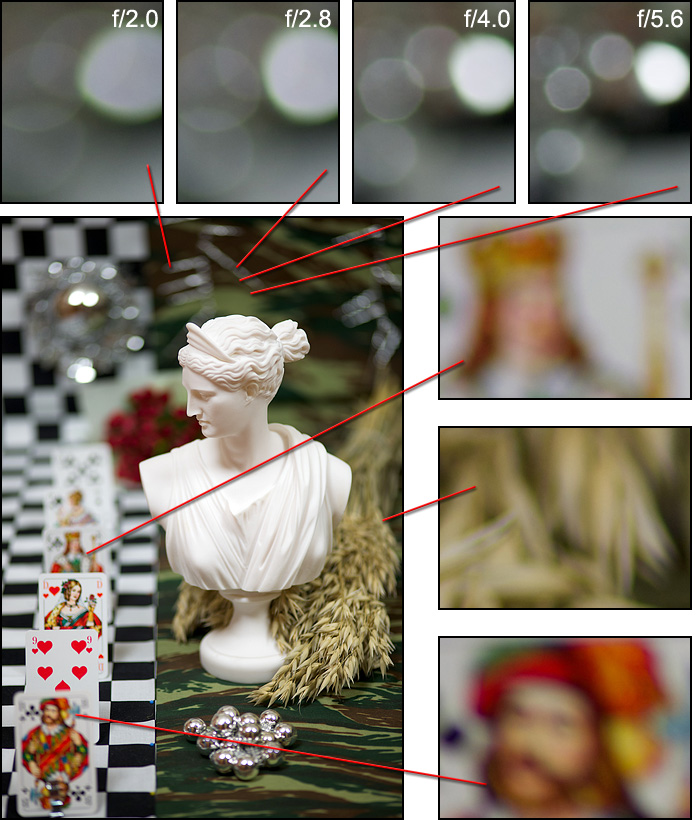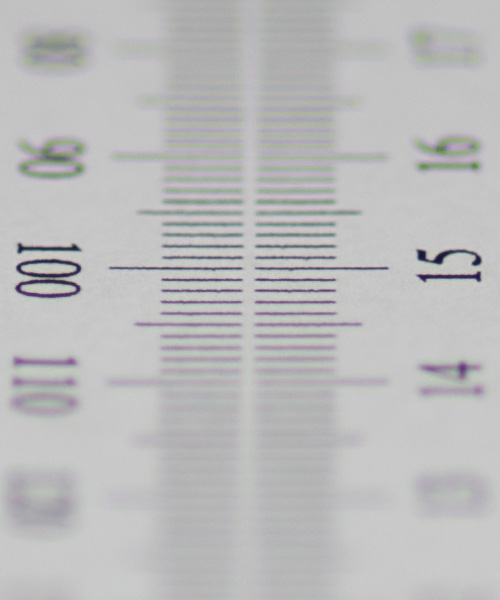|
Zeiss Makro-Planar T* 100mm f/2 ZF (ZE) (on Canon EOS) - Lab Test / Review - Analysis |
|
Lens Reviews -
Canon EOS (Full Format)
|
|
Page 2 of 2

Distortion
The Makro-Planar is capable of producing distortion free images. This is impressive
albeit quite typical for macro lenses.

Vignetting
The Zeiss lens has its share of vignetting problems when used on a full format camera.
At 1.5EV @ f/2 the problem is fairly obvious but it's actually not worse than the results
by its competitors at f/2.8. Stopping down reduces the issue and it's not
field relevant anymore from f/4 onwards.

MTF (resolution)
The Zeiss lens produced superb resolution figures in our MTF lab. The center resolution is already
exceedingly sharp at f/2 and the borders/corners follow on a very good level. The center quality
broke the previous resolution record at f/4 - it's safe to state that the lens is easily outresolving
the 21mp of our test DSLR here. The global peak performance is reached at f/5.6 with an excellent
quality across the image frame. Diffraction effects have a higher impact from f/11 onwards but the
quality is still very good at f/16. Field curvature is a non-issue.
Please note that the MTF results are not directly comparable across the different systems!
Below is a simplified summary of the formal findings. The chart shows line widths per picture height (LW/PH) which can be taken as a measure for sharpness.
If you want to know more about the MTF50 figures you may check out the corresponding Imatest Explanations
Chromatic Aberrations (CAs)
Chromatic aberrations (color shadows at harsh contrast transitions) are extremely well controlled
and not field relevant anymore.

Bokeh
The bokeh (the quality of the out-of-focus blur) is a primary aspect for an ultra large aperture lens
and the 100mm f/2 does not disappoint us here - mostly. The blur is very smooth and buttery. Out-of-focus highlights
are rendered very well at f/2 and f/2.8 although the shape is not perfectly circular but a bit "cat's eye"-like.
If you stop down to f/4 and beyond you may spot some more angled highlight "discs" if you try hard enough.

Bokeh Fringing / Longitudinal Chromatic Aberrations (LoCA)
Bokeh fringing at large aperture is a problem which is often not well corrected even by the very best
lenses and the Makro-Planar is no exception to the rule unfortunately. If you have a look at the provided
sample crops below you should be able to spot a purple halo in front of the focus zone
and a green one beyond. The effect is clearly visible from f/2 till f/5.6, less so beyond.
|
Move the mouse cursor over the f-stop marks below to observe the respective LoCAs
|
| f/2 |
f/2.8 |
f/4 |
f/5.6 |
|

|
VerdictTo date the Zeiss Makro-Planar T* 100m f/2 is the best medium tele macro lens tested on a full format EOS DSLR.
The lens is very sharp at f/2 and truly excellent between f/4 and f/8. Lateral CAs as well as distortions
are not relevant from a field perspective. The amount of vignetting is quite high at f/2 but not an
issue anymore from f/4 onwards. The quality of the bokeh is generally very good at large aperture although
you may be able to spot some "cat's eyes" as well as bokeh fringing (LoCAs). The Zeiss allows a max. magnification
of 1:2 only which may be a drawback for some but the fast max. aperture is certainly broadening its scope into
other applications such as portrait photography.
Just like the rest of its family the Zeiss lens is built to the highest standards. Some users may complain
about the lack of AF and it is indeed difficult to focus this lens manually without a split-image screen. However,
the focus confirmation is available in the viewfinder (ZE version) and in critical scenes Live-View can give
you the needed guidance. That said, it remains a bit of an anachronism these days.
The price level is more than steep but this is about as good as it gets on a full format DSLR. Highly
recommended (if you can live with manual focusing here)!
|